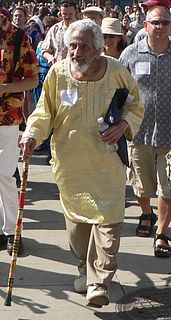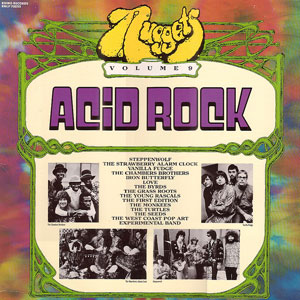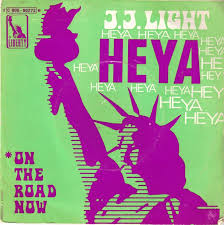| The West Coast Pop Art Experimental Band Companion | ||||
|---|---|---|---|---|
 | ||||
| Compilation album by | ||||
| Released | June 7, 2011 | |||
| Recorded | 1960 - 1971 | |||
| Genre | ||||
| Length | 1:13:56 | |||
| Label | Sunbeam | |||
| Producer | Steven Carr | |||
| The West Coast Pop Art Experimental Band chronology | ||||
| ||||
The West Coast Pop Art Experimental Band Companion (sometimes known simply as Companion) is a compilation album by the American psychedelic rock band the West Coast Pop Art Experimental Band (WCPAEB), and was released on Sunbeam Records on June 7, 2011. The album is a collection of demos, tracks that appear on early singles, and rare material that derive mostly from the group members' side-projects before, during, and after the WCPAEB's recording career.
A compilation album comprises tracks, which may be previously released or unreleased, usually from several separate recordings by either one or several performers. If by one artist, then generally the tracks were not originally intended for release together as a single work, but may be collected together as a greatest hits album or box set. If from several performers, there may be a theme, topic, time period, or genre which links the tracks, or they may have been intended for release as a single work—such as a tribute album. When the tracks are by the same recording artist, the album may be referred to as a retrospective album or an anthology.

Psychedelic rock is a diverse style of rock music inspired, influenced, or representative of psychedelic culture, which is centred around perception-altering hallucinogenic drugs. The music is intended to replicate and enhance the mind-altering experiences of psychedelic drugs, most notably LSD. Many psychedelic groups differ in style, and the label is often applied spuriously.

The West Coast Pop Art Experimental Band (WCPAEB) was an American psychedelic rock band formed in Los Angeles, California in 1965. The group created music that possessed an eerie, and at times sinister atmosphere, and contained material that was bluntly political, childlike, and bizarre. Representing different musical backgrounds among band members, the group, at times, resembled a traditional Byrds-esque folk rock ensemble, but the WCPAEB also, within the same body of work, recorded avant-garde music marked by multi-layered vocal harmonies.
All of the tracks featured on Companion were previously released, although a number of them had never appeared on a commercially accessible album. The first nine tracks, devoted to early projects instigated by Bob Markley as the lead vocalist and record producer, hold insight into the unusual self-appointed frontman's musical style. [1] Perhaps more intriguing are the bands formed by Michael Lloyd and Shaun and Danny Harris—the young masterminds behind the group's enigmatic leader—whose recordings would sometimes manifest themselves on WCPAEB albums and later solo careers. The Laughing Wind, the folk rock predecessor "discovered" by Markley prior to the band's formation, reveals a more embryonic version of what the group would develop into. [2] [3]
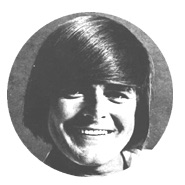
Robert H. Markley was an American singer-songwriter and record producer who co-founded the psychedelic rock band, The West Coast Pop Art Experimental Band, in the late 1960s, and became one of the most controversial figures that emerged from the era.
The lead vocalist in popular music is typically the member of a group or band whose voice is the most prominent in a performance where multiple voices may be heard. The lead singer either leads the vocal ensemble, or sets against the ensemble as the dominant sound. In vocal group performances, notably in soul and gospel music, and early rock and roll, the lead singer takes the main vocal part, with a chorus provided by other band members as backing vocalists.

A record producer or music producer oversees and manages the sound recording and production of a band or performer's music, which may range from recording one song to recording a lengthy concept album. A producer has many, varying roles during the recording process. They may gather musical ideas for the project, collaborate with the artists to select cover tunes or original songs by the artist/group, work with artists and help them to improve their songs, lyrics or arrangements.
The tracks "Sassafras" and "I Won't Hurt You", both from the band's first album Volume One ("Sassafras" only appears as a bonus track on the 1997 reissue of the album), are credited to the WCPAEB. [4] Companion unexpectedly concludes with the avant-garde electronic tune "Leiyla and the Poet" by experimental composer Halim El-Dabh. The album also features an informative booklet with rare photographs of the band members. [5]
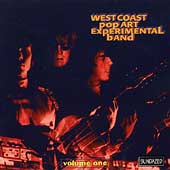
Volume One is the first album recorded by the psychedelic rock band the West Coast Pop Art Experimental Band. It was first released in 1966 on the small FiFo Records label. It was reissued in both compact disc and vinyl in 1997 by Sundazed. The album features covers of pop classics such as Richard Berry's "Louie, Louie" and the Kinks' "You Really Got Me". The songs mellow out into a blues/folk style with covers of Bob Dylan songs.
Avant-garde music is music that is considered to be at the forefront of experimentation or innovation in its field, with the term "avant-garde" implying a critique of existing aesthetic conventions, rejection of the status quo in favor of unique or original elements, and the idea of deliberately challenging or alienating audiences.
Electronic music is music that employs electronic musical instruments, digital instruments and circuitry-based music technology. In general, a distinction can be made between sound produced using electromechanical means, and that produced using electronics only. Electromechanical instruments include mechanical elements, such as strings, hammers, and so on, and electric elements, such as magnetic pickups, power amplifiers and loudspeakers. Examples of electromechanical sound producing devices include the telharmonium, Hammond organ, and the electric guitar, which are typically made loud enough for performers and audiences to hear with an instrument amplifier and speaker cabinet. Pure electronic instruments do not have vibrating strings, hammers, or other sound-producing mechanisms. Devices such as the theremin, synthesizer, and computer can produce electronic sounds.
